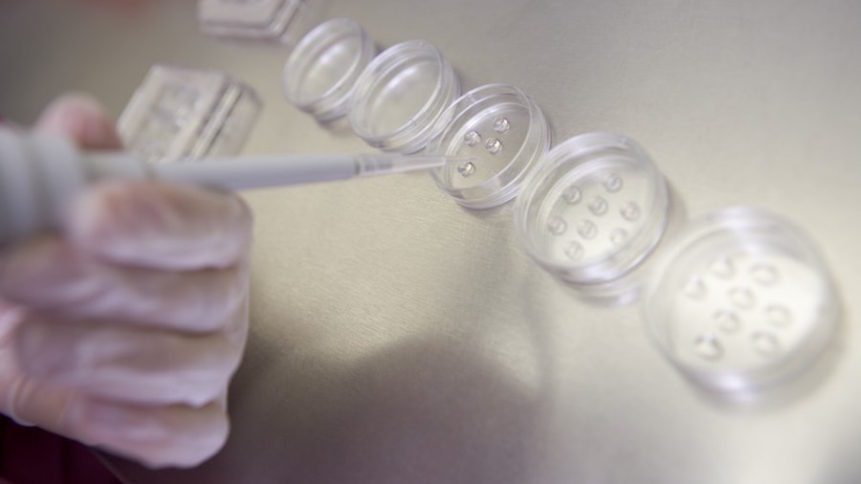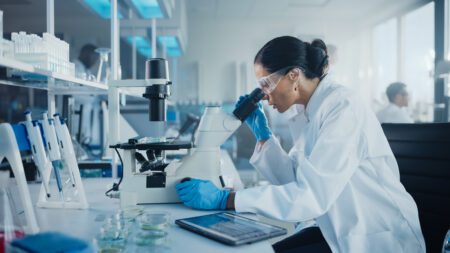
An interview with “Bob,” who was a sperm donor more than 30 times over 20 years ago.
What made you become a sperm donor?
I did it during graduate school, between 1989 to 1992. I worked for a clinic on the Upper East Side of Manhattan and I was getting a PhD in Biology from Columbia University. The thing is, many people in my field donated body parts for medicine or for research. This was normal.
The motivation for me was many fold: I did it in the name of science; I did it because so many people want to have kids and I could help (you realize some people have a profound need), and it was fun to make a small amount of money.
I now teach genetics, so this is an area I’m interested in, and I had had my DNA screened by the clinic doctor at the place where I worked. It looked like I had no indications of genetic diseases.
As a biologist, I’ve also donated blood and bone marrow. Anything that the human race needs—I’m ready!
Donating sperm over 30 times is a sizable number! How long did you do this for?
One Christmas holiday break, I donated four times for four different women!
The fertility doctor used me repeatedly over about three years. She fired all of us when she decided to use fresh, not frozen, sperm.
When I was a donor, the doctor’s husband would call me at odd hours, sometimes at 11 pm, when their female patient was at peak ovulation. With an accent and in a very secretive sounding voice he’d say, “Bob, please come into the office tomorrow morning…”
What’s interesting about it was that there was the AIDS epidemic at the time and [the doctor] wanted to make sure all of the samples were screened. Each sample was pre-screened and actually more safe for the patient. But, the fresh sperm donors got the women pregnant almost always.
I donated 33 times and I believe every one of them produced a pregnancy. The doctor was good. She understood the patients and knew her window of maximum fertility.
What kind of patients were treated by this doctor? Did you ever see the couples for whom you were donating?
By mistake, I got to see two of the couples come in after I dropped off my sample. The process was completely anonymous, and I recall that during one Sunday at an odd hour, I accidentally saw couples waiting. (I saw their faces when I walked in, so I had a sense of who the customers were.)
Most of the time, this process was very anonymous. I’d put my sperm sample in a dresser drawer and a doorman in the doctor’s office would take it from me.
The fertility doctor I worked with worked with married couples in which the husband had chronic infertility issues. These couples were in a panic because they wanted to have at least one kid. All of them at the time seemed to be from wealthy backgrounds and the fertility doctor then thought that the stress and their lifestyles (heavy drinking, marijuana use) was contributing to their fertility issues, like low sperm counts.
What criteria and characteristics did the sperm donors seem to have in common?
I was a research graduate student and my life was pretty relaxed at the time. Like me, the 5 to 10 other donors who worked for her at the time were all pretty health conscious.
Getting into the sperm clinic was like getting into graduate school!The people who used the sperm donors seemed to look for a high IQ (this is especially important in New York)! I had worked at Harvard Medical School and I got 800 on my GREs.
Getting into the sperm clinic was like getting into graduate school!
In my application, I told everyone that my family was very healthy, but that we had a history of anxiety disorders. Also, I had inherited a hearing loss problem. (Because I have a science background, I knew these things were worth mentioning.) I knew the importance of a couple having a healthy child. The trauma of bad DNA is terrible.
When my classmates and I were doing research and donating our time and body parts, we felt science was good for the human race. This was part of my motivation to be a sperm donor, and I’m sure the motivation of many other donors.
Do you know anything about how or why you were chosen by certain couples?
The clinic always matched my skin color and blood type to the father. They even took a picture of my cheek, to show the couples.
Funny, maybe because my experience of being a donor was in New York City…but my blond friend hardly ever got calls to donate his sperm!
The reality then, and probably today, is that if you have Ivy League on your resume, you’re more likely to be called.
Today I’m sure it’s much more sophisticated and they look for general mental, emotional, and physical health.
Did this ‘job’ affect your personal or business life?
In addition to working in the lab, I also taught sex ed in a Catholic school while donating. Funny, right? Teaching sex ed in an all-boys school and impregnating women!
One time, I had 104-degree F fever and all the sperm cells were dead and the doctor panicked.
Over a few years, there were a number of experiences. For the most part, though, I really enjoyed being a donor.
Do you have any desire to connect with your biological offspring?
I would like to find my offspring; at least one or two of them.
I did contact the clinic twice (they’re still operating!) and I didn’t get a response. I went online to try to find connections, and I haven’t had any luck so far. There are legal issues, obviously. People are scared of that.
Once in a while, I will see a male or a female who resembles me and I wonder…
When I went online to try to locate my offspring, I found a lawyer who was looking for his family’s sperm donor and I found one online in Egypt who looked identical to my sister. It turns out these weren’t genetic connections.
There were two people who contacted me a few years ago, and it turned out that they weren’t related to the clinic.
Once in a while, I will see a male or a female who resembles me and I wonder…
I think the biggest motivation for the offspring happens if the child of a donor’s father dies and/or there’s no relationship with his family. I imagine that that’s when it may peak and the mother may tell the kids the story, if she hadn’t already. At this point, the kids may pursue looking for their biological parent.
Do you have or have you had any desire to have a child(ren) of your own?
For a number of years I was with a partner who was infertile and had adopted a child. In her case, it was an age issue; she was running out of time and wasn’t able to have kids. She’s a wonderful person. It’s kind of ironic that I dated her, right?
Sometimes I think about taking in foster kids and to take part in some kind of parenting.
How do you feel about your contribution now, more than two decades later?
It feels really good to know that I have all these (biological) kids! It was a great experience to be a sperm donor.
“My children,” the ones from the sperm clinic, are now in their 20s. The offspring I produced seem like they would have been raised in nice households.
I have great ancestry; I would never have donated sperm if I had genetic issues in my family. I studied DNA and molecular biology, so I feel confident about my contribution. I donated something that will keep someone healthy, and that feels good.
I’m definitely open to being found if someone looked for me. I’d love to meet these people! My family is wealthy and successful. If my biological kids discovered who we were, I think they’d be very happy. (We’re not in jail!) My dad teaches molecular biology at Columbia.
We’re good people.

Listen to stories, share your own, and get feedback from the community.


















